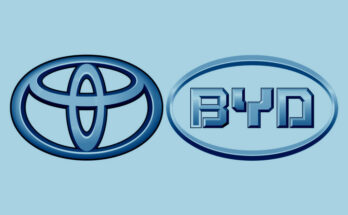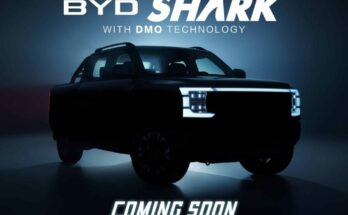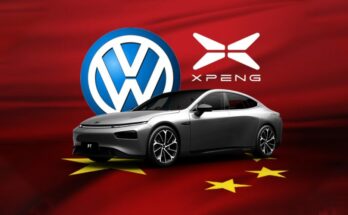German auto giant Volkswagen confidently claimed it will overtake Tesla in EV sales by 2025. This came when VW unveiled its future EV plan in 2019, it was the largest automobile manufacturer in the world and had a strong chance of surpassing Tesla as the leading producer of battery-powered cars by the middle of this decade.
The then Volkswagen CEO Herbert Diess while talking to shareholders, said:
“Volkswagen will change radically, some of you may be rubbing your eyes in amazement. But make no mistake — the supertanker is picking up speed.”
However, the shift has not occurred yet. After almost five years, the Volkswagen Group, which includes Audi and Porsche, is still far behind Elon Musk’s Tesla and sold less than half of its US competitor’s 1.31 million pure electric vehicles in the previous year.
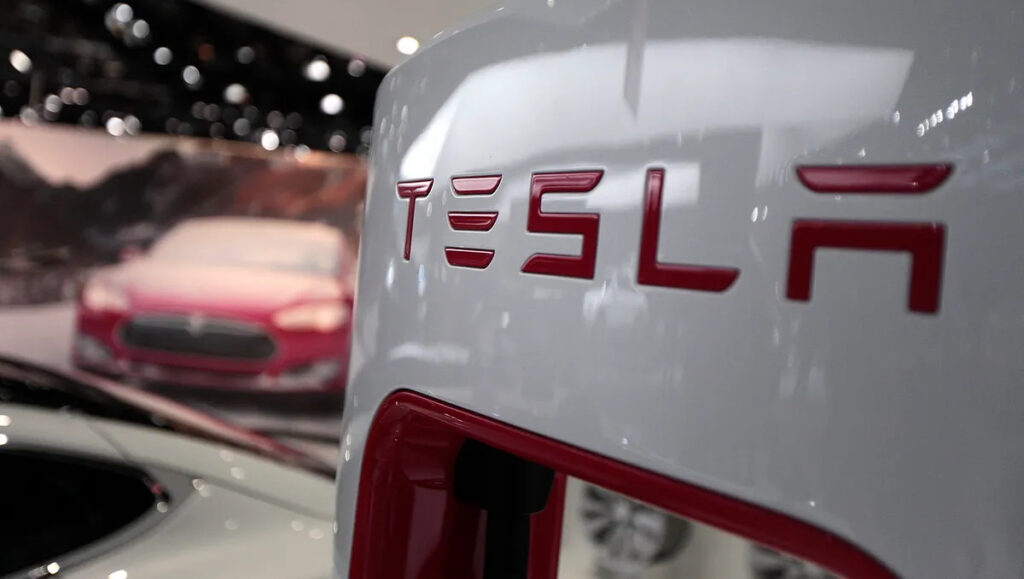
To make matters worse, the German manufacturing behemoth is losing ground to new opponents from China, its single largest market, and the country where Volkswagen has been the best-selling car brand since at least 2000. The brand is on the verge of losing that title to local electric rival BYD.
Related: BYD and Tesla Commands One-Third of Global EV Market Share
According to Al Bedwell, a director at GlobalData who focuses on e-mobility trends:
“Volkswagen has just fallen behind in the battery electric vehicle race. The big problem is China, where we expect Volkswagen to go backward this year regarding sales volumes.”
In a market where EV sales are expected to grow by more than a quarter in 2023, Volkswagen’s sales, as forecast by GlobalData, a data analytics company, are to shrink by 7%. The group now sits in 8th place in China’s fast-growing market for electric cars, with a share of just 3.3%. BYD, which holds the top spot, has 25% and Tesla, in second place, has 15%, according to GlobalData report.
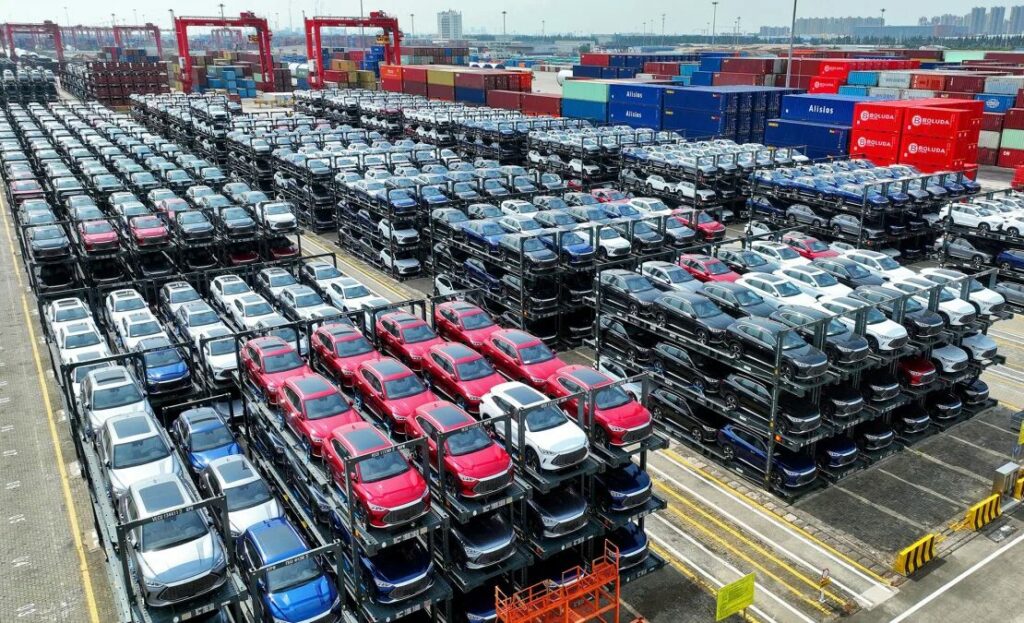
Last month, Thomas Schaefer, the current CEO of Volkswagen passenger cars, admitted that the group’s flagship brand is “no longer competitive” owing to high costs and low productivity. These remarks coming from the top level were aimed at reinforcing to employees the urgent need for change to secure the future of the brand.
Related: BYD Inching Closer to Dethrone Tesla as World’s Largest EV Maker
Executives are now talking with workers about how to cut €10 billion ($10.8 billion) in costs to boost efficiency. according to Daniel Roeska, head of EU automotive research at Bernstein brokerage.
“With profit margins on the Volkswagen brand in the low single digits, it’s barely break-even at a time when (car) prices are higher than they’ve ever been. Whatever they do in this cost restructure, it’s definitely going to be better than not doing it… it’s also likely that they will be unable to do enough.”
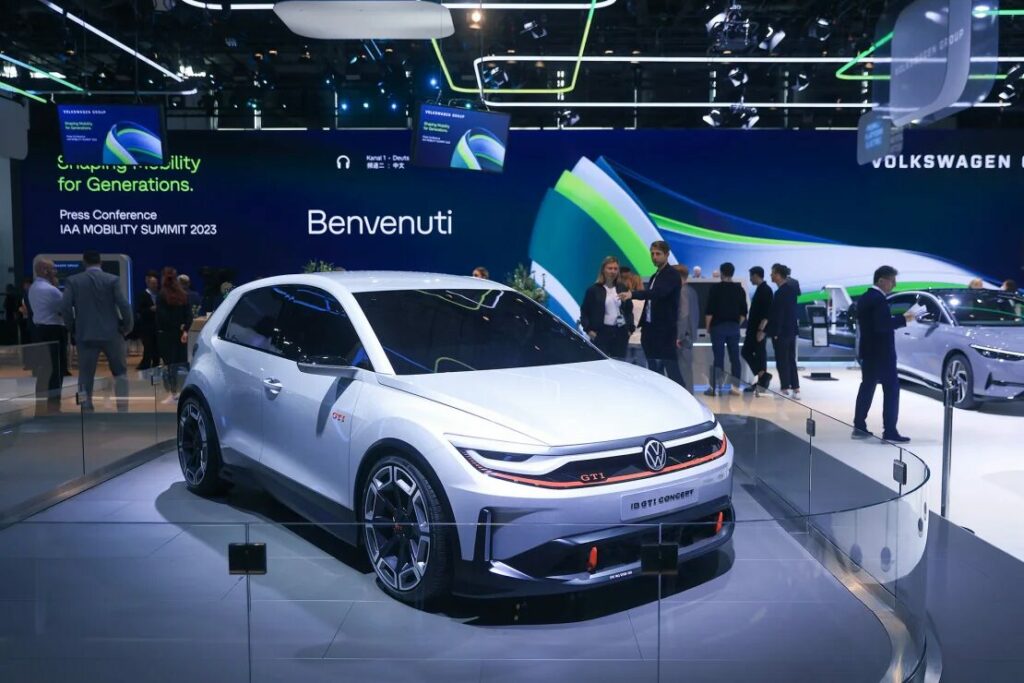
It was never going to be easy for an 86-year-old company with 115 factories and nearly 676,000 employees worldwide to move at the speed demanded by the EV race. Take its concept electric GTI, which it unveiled at the Munich Auto Show in September and plans to bring to market only in 2027. That’s almost four years to transition the concept into a production model.
Related: Volkswagen Considers NIO, XPENG, BYD, and CATL of China as Direct Competitors
On the other hand, Patrick Hummel, who leads European autos research at UBS reveals that BYD takes only around 2 years or less to do the same. “There’s a totally different development cycle and speed to market”, he said.
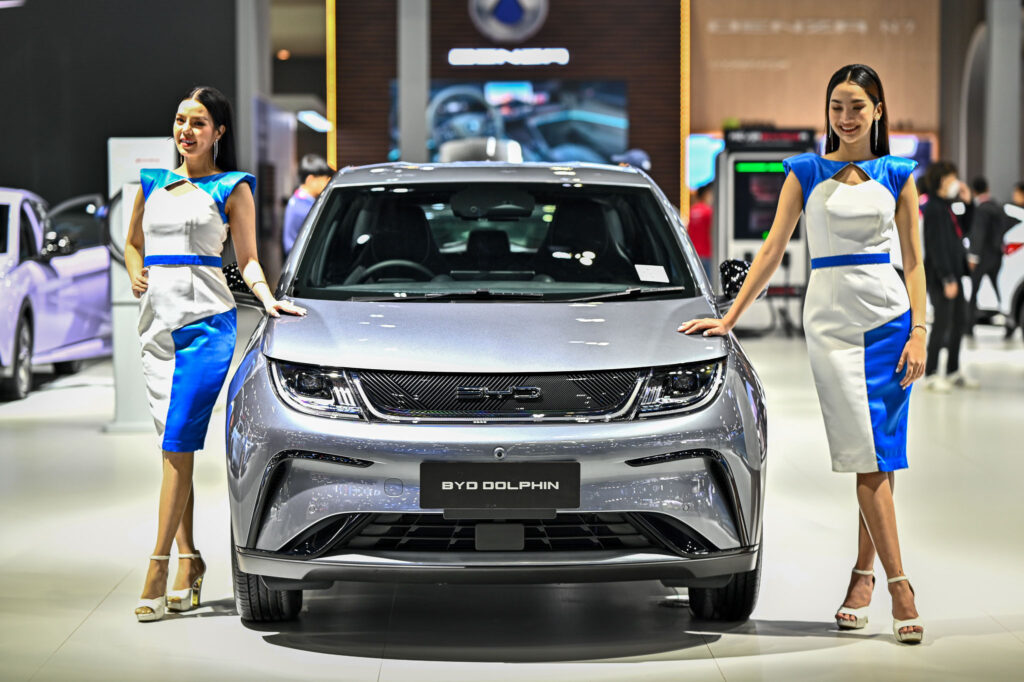
Unlike newer entrants, Volkswagen has also had to run an existing business that churns out millions of combustion-engine cars each year and still accounts for the vast majority of the group’s sales and profit. In the first 9 months of this year, EVs made up just 8% of the group’s deliveries — or 531,500 of 6.8 million vehicles sold. Volkswagen is targeting a 50% share by 2030.
Related: Volkswagen to Shorten New Car Development Times to Compete Against Chinese Brands
Volkswagen will need to close the technological gap with industry leaders in order to get there. Poor software has been the carmaker’s “Achilles’ heel,” according to Bedwell of GlobalData. This has been especially true for Volkswagen’s flagship electric passenger car, the ID.3, the electric equivalent of the very popular Golf compact. Bedwell said:
“The on-board technology was glitchy, the software wasn’t fully developed, they kept promising fixes which weren’t really delivered or came late… VW was just perceived as being behind the curve. The early software glitches with ID.3 have been addressed but VW lags behind the industry leaders.”
That has cost Volkswagen dearly in China, where it is now partnering with local carmakers to expand its product range and improve technology. “The new models will provide growth impetus,” a Volkswagen spokesperson said.
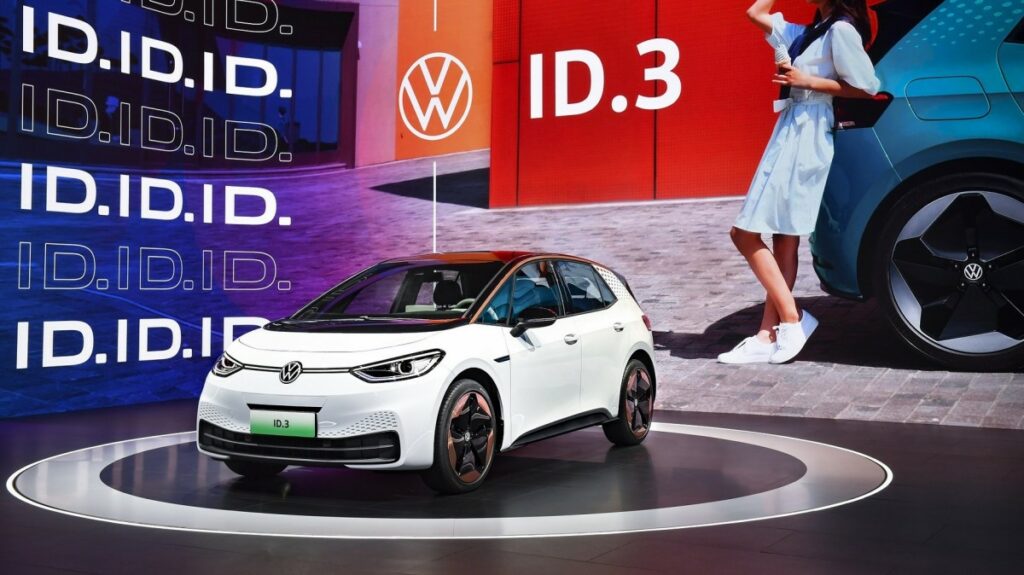
GlobalData sees Volkswagen Group selling 717,000 EVs this year, giving it a global market share of 7% and putting it in fourth place behind Tesla, BYD, and China’s SAIC Motor. However, the firm still sees VW becoming the world’s biggest EV brand by 2030 — five years later than previously forecast.
Related: Volkswagen Wants Europe’s Vehicle Emissions Rules Postponed
Bedwell pointed to the company’s resources and global brand recognition as key strengths, as well as the sheer spread of brands across many different markets and price points, which will allow it to “plug many more holes” than Tesla. He believes:
“There are solid reasons why VW will bounce back, but right now they are finding life a bit tricky.”
Source: CNN

A computer animation professional with over 23 years of industry experience having served in leading organizations, TV channels & production facilities in Pakistan. An avid car enthusiast and petrolhead with an affection to deliver quality content to help shape opinions. Formerly written for PakWheels as well as major publications including Dawn. Founder of CarSpiritPK.com

